Hollywood star and former California governor Arnold Schwarzenegger doubled down Friday on comparing the January 6, 2021, Capitol riot to Kristallnacht, the “Night of Broken Glass” that launched the Holocaust in 1938.
Schwarzenegger, speaking with CNN’s Chris Wallace, refused to back down from the comparison, which he first made in the aftermath of the Capitol riot in 2021. He cited his own Nazi father in comparing the two events. He seemed to think the common thread was that people were misled by charismatic leaders into doing bad things.
However, setting side the ongoing controversy about whether President Donald Trump — who told protesters to march “peacefully and patriotically” to the Capitol — is responsible, the two events have nothing in common.
Kristallnacht, the U.S. Holocaust Museum notes, was “a series of pogroms against the Jewish population in Germany and recently incorporated territories.”
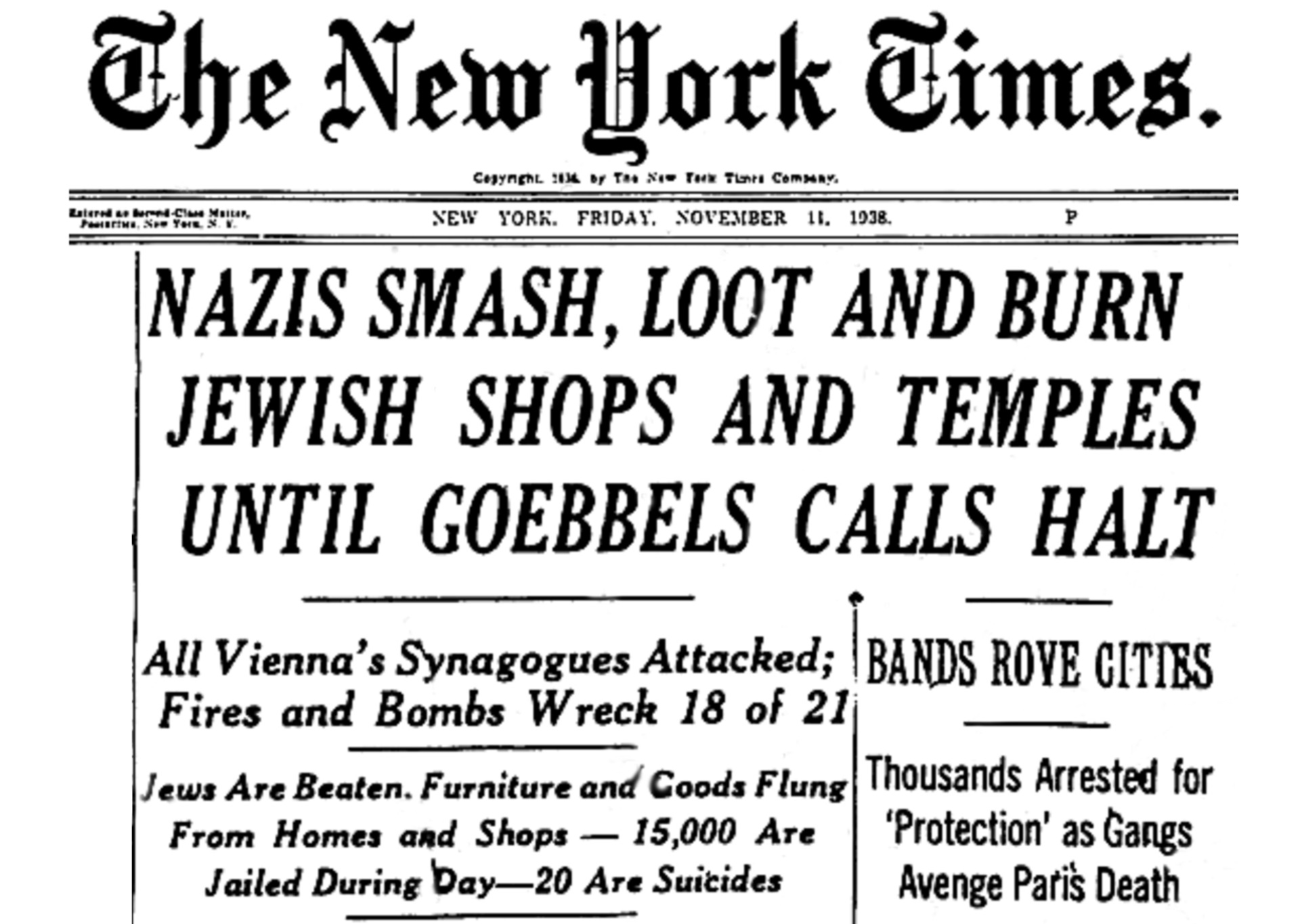
Germany/Austria: Headline in the New York Times after the anti-Jewish pogrom known as Kristallnacht, 11 November, 1938. (Photo by: Pictures from History/Universal Images Group via Getty Images)
Dozens and perhaps hundreds Jews were killed as Nazi activists smashed Jewish-owned storefronts (hence the name “Kristallnacht,” for the broken glass on the streets) and set fire to synagogues.
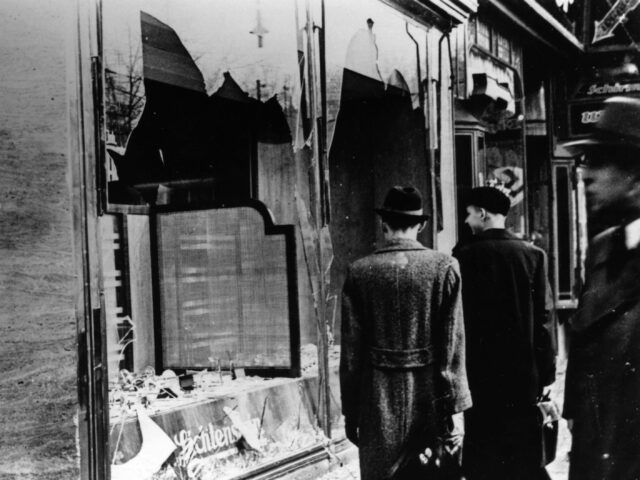
10th November 1938: Three onlookers at a smashed Jewish shop window in Berlin following riots of the night of 9th November. (Photo by Hulton Archive/Getty Images)
Photos the next day showed Jewish shopkeepers struggling to sweep up the destruction, which Nazi leaders described, falsely, as a spontaneous reaction to the assassination of a German diplomat by a Jewish refugee.
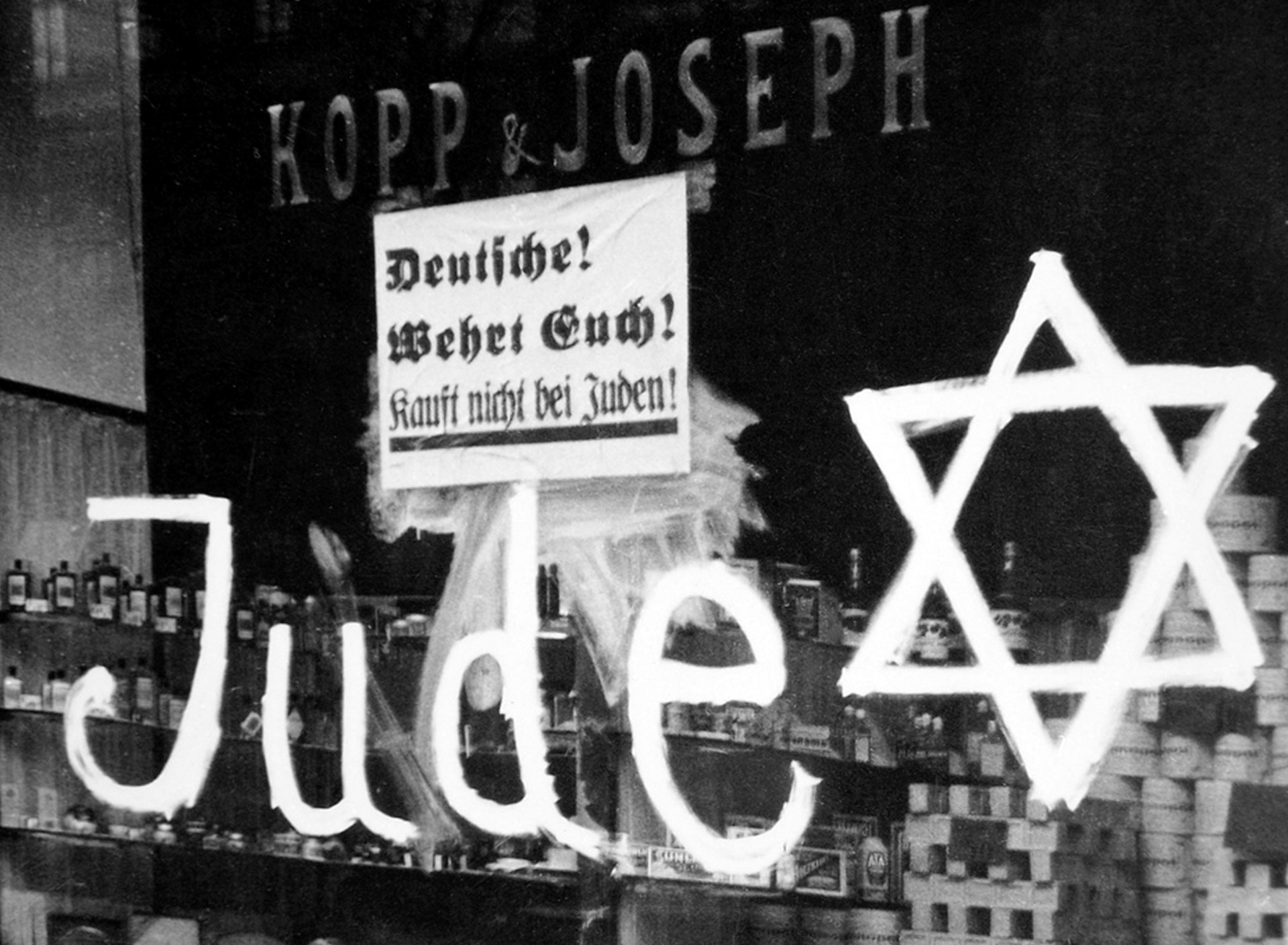
Germany: A Jewish-owned shop vandalized by Nazis with poster reading ‘Germans Defend Yourselves – Don’t Buy from Jews’, 1938. (Photo by: Pictures from History/Universal Images Group via Getty Images)
The Nazi regime began persecuting Jews in earnest following the event.
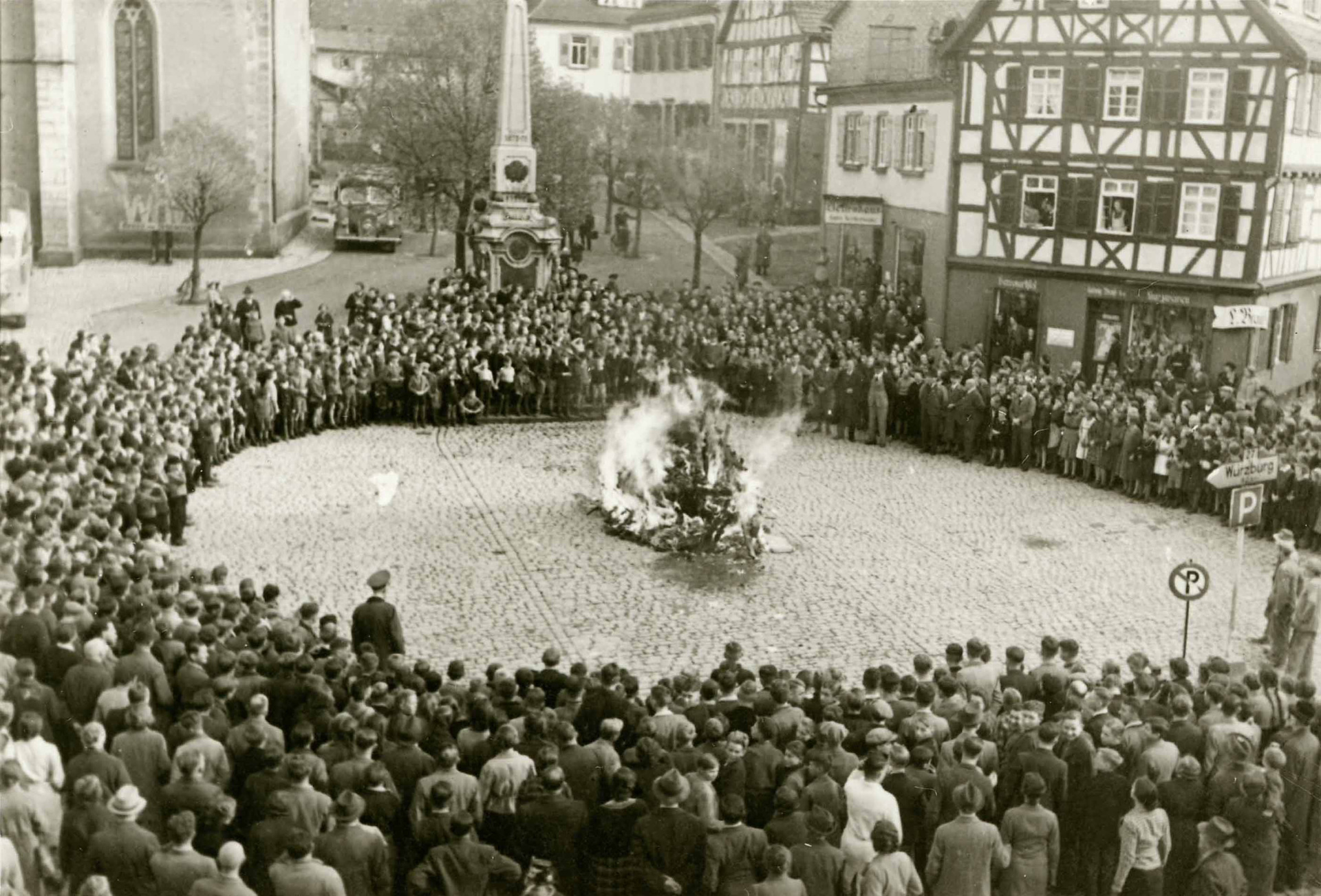
The furnishings and ritual objects from the synagogue in Mosbach on the town square on 10 November 1938. Found in the collection of State Museum of History, Moscow. (Photo by Fine Art Images/Heritage Images/Getty Images)
Already, Jews were subject to discrimination within Germany. Kristallnacht launched a wave of arrests and deportations, culminating in mass murder that began after Germany launched World War II nine months later.
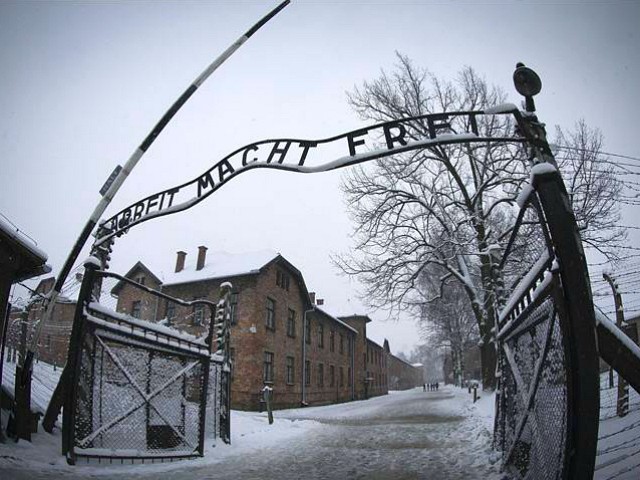
The entrance to the former Nazi concentration camp Auschwitz-Birkenau with the lettering ‘Arbeit macht frei’ (‘Work makes you free’) is pictured in Oswiecim, Poland on January 25, 2015, days before the 70th anniversary of the liberation of the camp by Russian forces. (Photo by Joël SAGET / AFP) (Photo credit should read JOEL SAGET/AFP via Getty Images)
In contrast, the Capitol riot was a political event confined to the U.S. Capitol in Washington, DC, in which only one person — a rioter — was killed.
It occurred alongside a peaceful protest aimed at pressuring Congress to do what Democrats had asked it to do on several previous occasions — namely, to refuse to certify the presidential vote of the Electoral College and to send the decision back to the states.
It was not motivated by bigotry, nor did it trigger nationwide violence or pogroms by Republicans — though it followed a summer of anti-police riots in 48 out of 50 major American cities that were often backed, tacitly or overtly, by Democratic Party politicians.
The UK Daily Mail elaborates:
Kristallnacht, often referred to as the “Night of Broken Glass,” was a wave of violent anti-Jewish pogroms which took place throughout Germany on November 9 and 10, 1938, that claimed the lives of nearly 100 Jews and sent 30,000 to concentration camps. Nazi mobs, SS troops and ordinary citizens torched, vandalized, if not completely destroyed thousands of Jewish homes, schools, synagogues, businesses, hospitals and cemeteries.
…
On January 6 2021, one person was fatally shot by a Capitol Police officer during the Capitol riots – protestor, Ashli Babbitt.
…
Kristallnacht resulted in about $400 million (in 1938 rates) in damages – which the Nazis held the German-Jewish community responsible, according to the U.S. Holocaust Memorial Museum.
The Capitol riots on January 6th, resulted in $1.5 million worth of damage to the U.S. Capitol building, according to the Department of Justice.
Schwarzenegger has previously faced questions around his father’s Nazi past, as evidence emerged that his father joined the Nazi Party of his own volition in the aftermath of Kristallnacht, and fought in the war.
The use (or abuse) of Kristallnacht is not the first time such events have been employed in American political discourse. Extreme critics of President George W. Bush claimed that the terror attacks of September 11, 2001, were a “Reichstag fire” aimed at restricting civil liberties. The reference was to a fire in the German parliament in 1933 that the Nazi regime used as a pretext to suspend various freedoms and expand its own power.
Schwarzenegger is a vociferous critic of former President Trump, as well as his party’s conservative wing.
Joel B. Pollak is Senior Editor-at-Large at Breitbart News and the host of Breitbart News Sunday on Sirius XM Patriot on Sunday evenings from 7 p.m. to 10 p.m. ET (4 p.m. to 7 p.m. PT). He is the author of the new biography, Rhoda: ‘Comrade Kadalie, You Are Out of Order’. He is also the author of the recent e-book, Neither Free nor Fair: The 2020 U.S. Presidential Election. He is a winner of the 2018 Robert Novak Journalism Alumni Fellowship. Follow him on Twitter at @joelpollak.
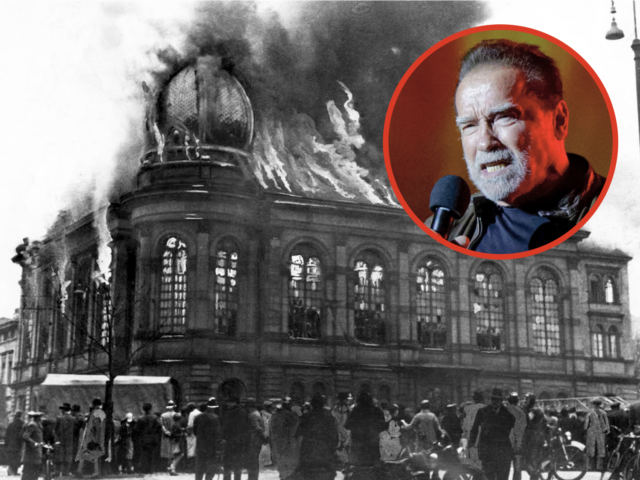
COMMENTS
Please let us know if you're having issues with commenting.